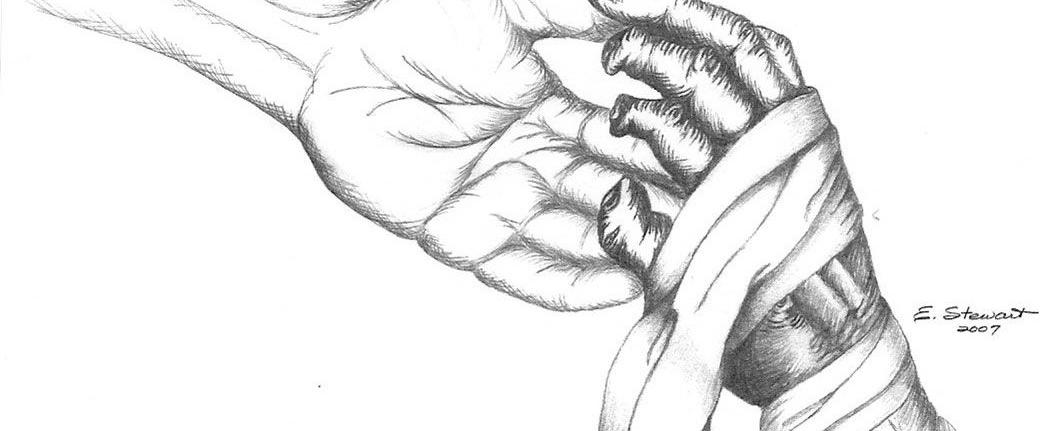Saint Francis Tells Us to Turn Ourselves Around, Look for Goodness

This blog continues our Lent 2021 series of reflections on the Franciscan Intellectual-Spiritual Tradition by a variety of women and men Franciscans.
The Assisi Compilation is a collection of stories about Saint Francis told by the friars who knew him personally and may even have lived with him. The stories were compiled between the years 1241 and 1260 and hold reasonable credibility as a significant contribution to our Franciscan intellectual tradition.
Apologize for a lack of kindness
One such story tells of a time when the friars were accosted by a group of robbers. Fearing the intentions of the robbers, the friars told them to leave the area and chastised the robbers for their apparent malintent. When Saint Francis arrived, the friars were eager to tell him about their encounter with the robbers and how they got rid of them. Rather than commending the friars, Francis chastised them. He told them to prepare a good meal for the robbers and take it to them with apologies for the lack of kindness that the friars had shown to them, and that the friars were to serve the robbers while they ate. You can imagine the surprise all around, both on the part of the friars and that of the robbers, when the friars arrived with wine, cheese, eggs, and bread.
Repent and believe in the gospel
We begin Lent with Jesus’ words found in Mark’s Gospel: “Repent and believe in the gospel.” Let us talk first about the word “repent” (1:15). We frequently think of penance as “five Our Fathers and five Hail Marys.” But penance or repentance is more than that. We are called to name our demons and to turn ourselves around, “turn over a new leaf” so to speak. This turning over or turning ourselves around comes from an old Latin verb vertere, meaning “to turn around.” If you have ever had a touch of vertigo, you feel like everything is spinning around. You are in a time of vertere, of turning around. Emotionally, attitudinally, Jesus is asking us to vertere—to let go of our fears and to turn ourselves around and walk a different way—maybe choose a different path in life, a different attitude, look at things from a different point of view.
Turn yourself around
Now for the word “gospel.” I doubt that Jesus meant the word gospel as we know it—by the names of the Gospel writers: Matthew, Mark, Luke, and John. Mark may have been calling our attention to the good news that Jesus would be bringing to us as he preached the kingdom of God in word and deed. So “repent and believe in the gospel” may be interpreted as “turn yourself around and make your words and actions correspond to the good news that I, Jesus, am bringing you”—the reason for the Incarnation.
Look for goodness
What does this have to do with the robbers? Well, robbers are basically “bad guys.” Who needs them? Who wants them? Francis knew that we are all made in God’s image; our Franciscan tradition emphasizes that God saw all creation as “good” and humans as “very good” (Genesis 1:31). Francis asked the friars to turn themselves around (both literally and attitudinally), go out and meet the robbers, get to know them, and look for the non-apparent goodness in each of them.
Approach conversion gently
In the story, Francis gives us another piece of wisdom. He desires that the robbers mend their evil ways, that they turn themselves around, but he asks his brother friars to approach conversion gently. “Make them promise you that they will not strike anyone or injure anyone’s person” (while they are busy robbing the people?). Francis knew that conversion is a slow process. Again, Francis sent the friars to the robbers with another lovely meal. He counseled his brothers to ask the robbers to change their lifestyle to one that would bring them more security and comfort as well as social acceptance. Francis taught the friars not to “ask for [full conversion] all at once, or they will not listen to you.”
Write off no one
Conversion comes slowly; it is a process. Everyone, I believe, is capable of some conversion. We cannot write ourselves off, and we cannot write off those who, like the robbers, we might consider “bad guys”; or those who are on the margins of society economically; or those who are physically different from us by racial identity or physical or mental disabilities, or sexual orientation; or those who are invisible such as the elderly and incarcerated; or just simply those whom we prefer not to see.
Walk a mile in another’s shoes
Jesus tells us to turn our attitude around, Francis sent his brothers to get to know the robbers, and our common humanity challenges us to find common ground with those with whom we may not be comfortable. Everyone has a story. We cannot judge anyone until we have walked a mile in their shoes. Sometimes walking in the shoes of another is not possible but walking in solidarity and compassion with them is always possible. As my incarcerated friend has said to me, “Nonna, you can’t walk in my shoes, but you certainly can walk beside me.” And walk beside him I do. We are gift to each other.
Be the change you want to see
How does the story end? “By the mercy of God, through the charity and the friendliness that the brothers showed them, some [of the robbers] entered religion, others embraced penance, promising . . . to no longer commit these evil deeds . . . .”
This Lent let us be the change we want to see. Let us turn ourselves around and embrace our brothers and sisters in a spirit of encounter, solidarity, and love.
-----
The drawing “Conversion” is by MaryEsther Stewart and used with permission.
Mary Esther Stewart
Secular Franciscan, Writer, Artist
MaryEsther Stewart, OFS, MEd, is a Secular Franciscan who walks in solidarity with her dear friend, Joe, who lives in an invisible world behind cement walls and razor wire. Conversion has taken them both beyond the walls to a deep trust of each other. MaryEsther is formation director for her Secular Franciscan region, St. Thomas More, that encompasses Arizona and southern Nevada. She is a writer, an artist, and gives retreats on Franciscan topics.

